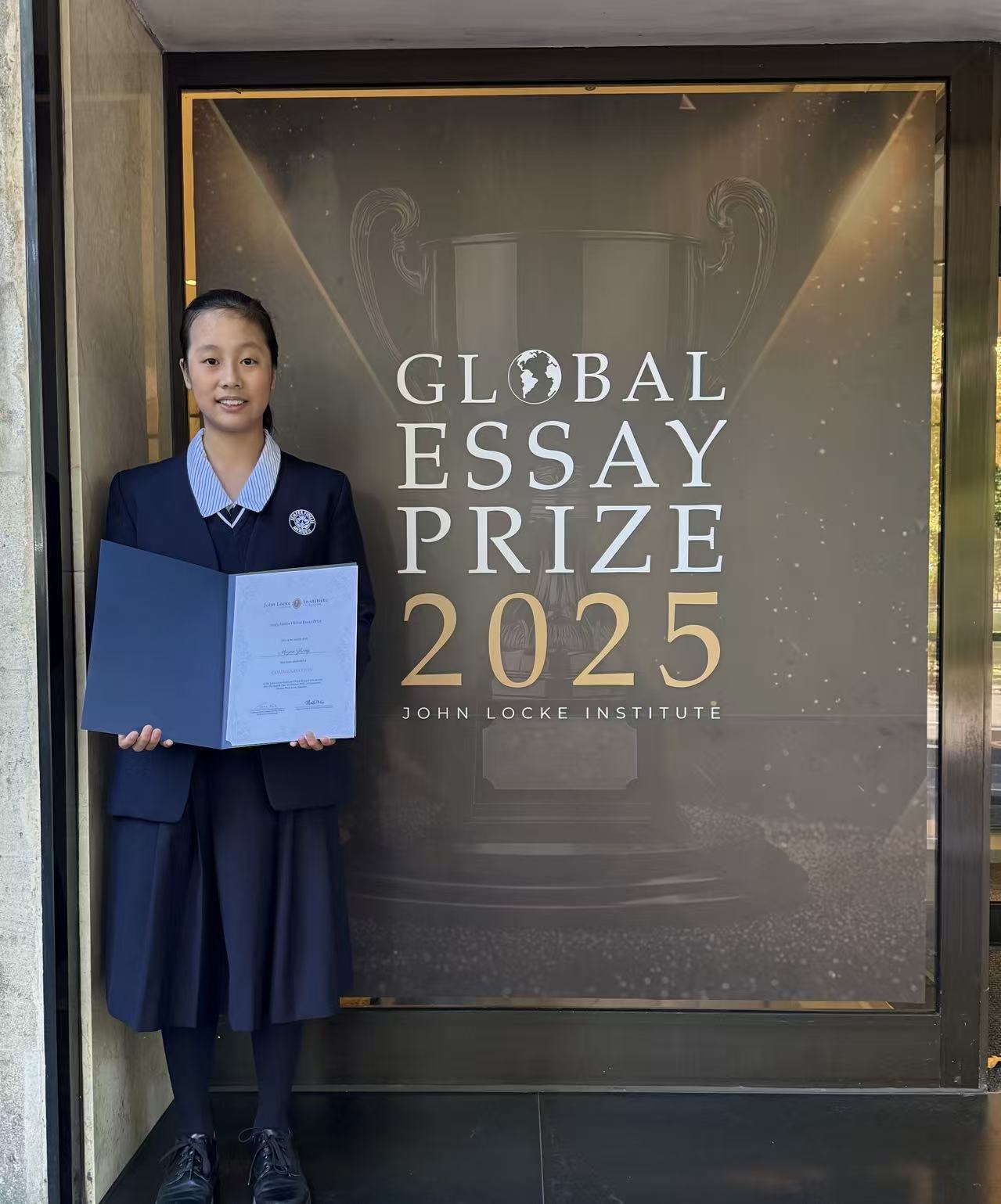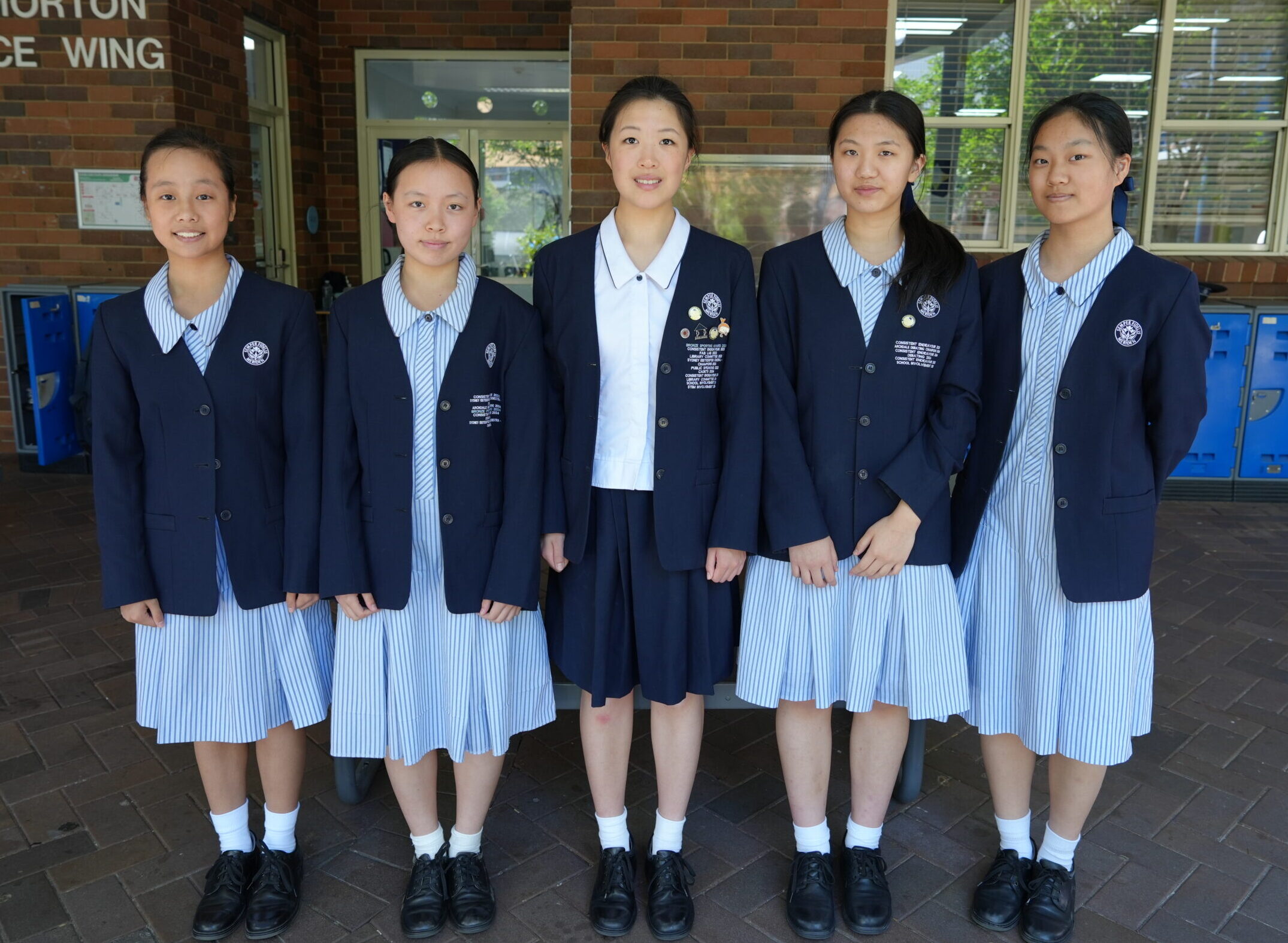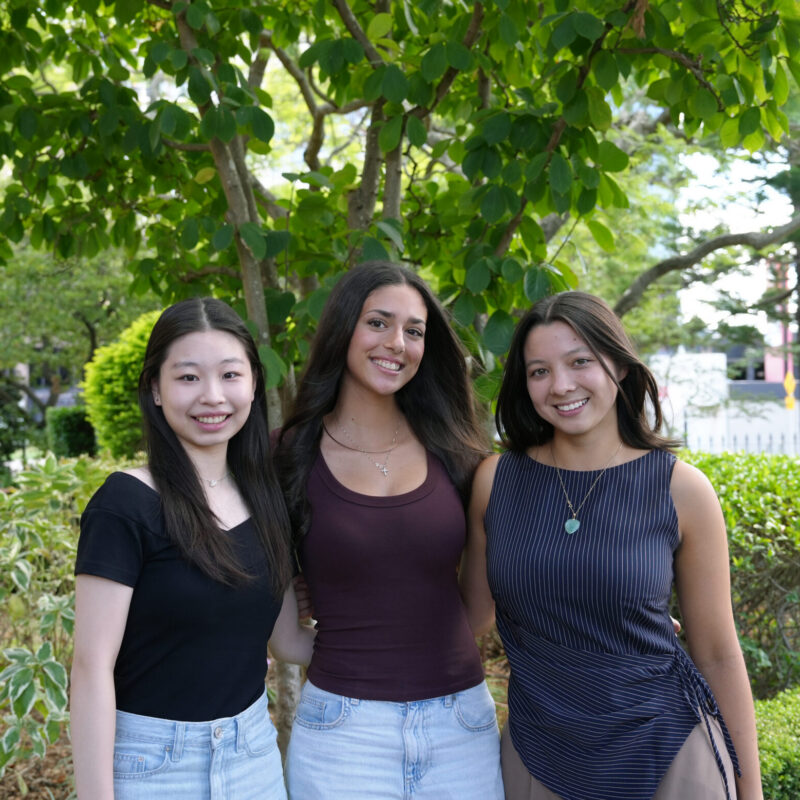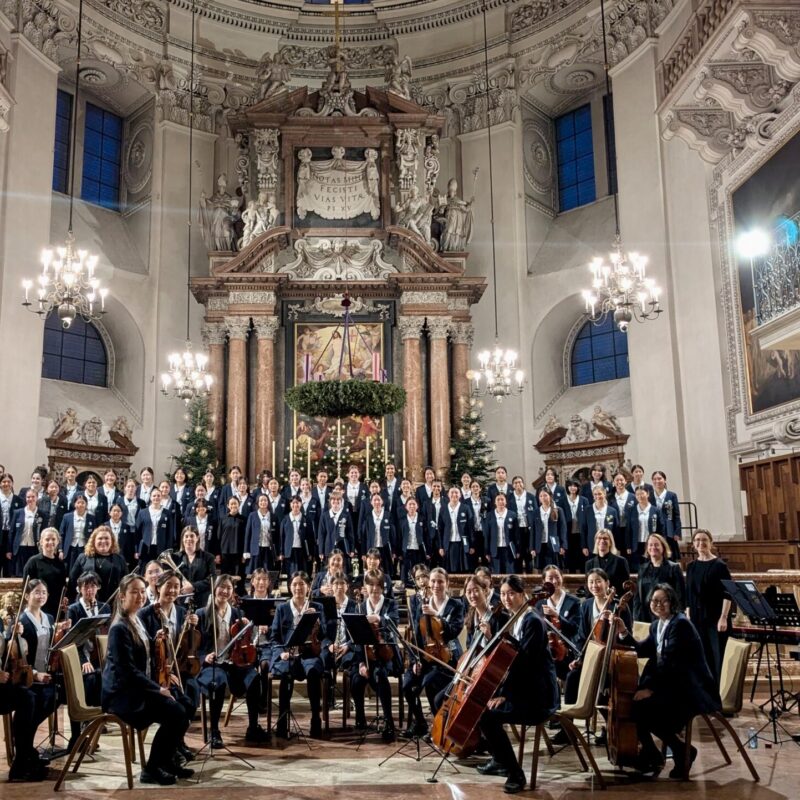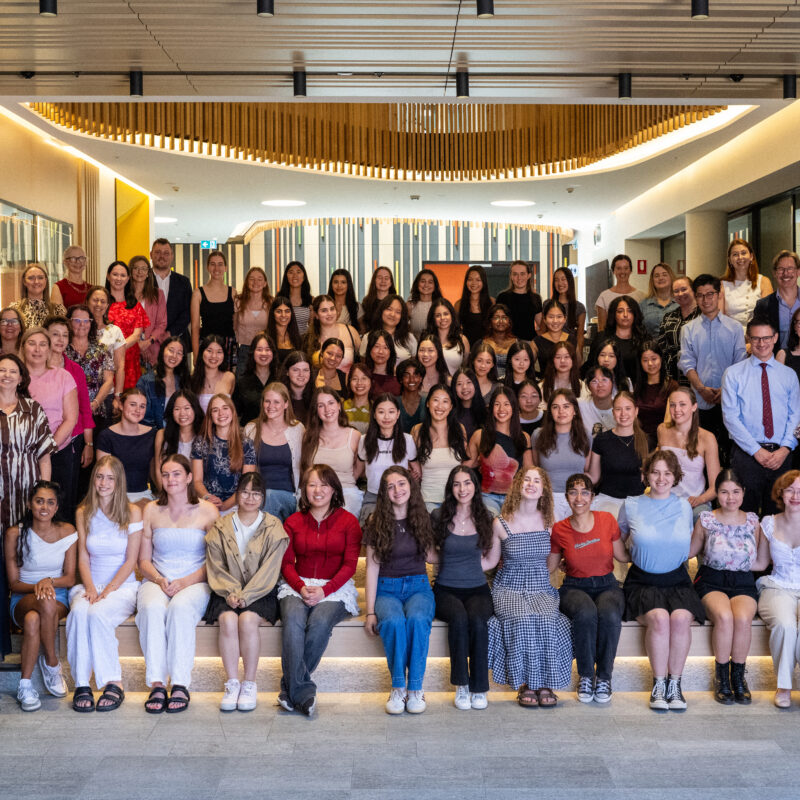In a remarkable academic feat, five Meriden students from Years 7 to 10 — Alice Feng, Iris Gai, Tracy Hu, Serena Li and Muyao Zhang — were shortlisted in the prestigious John Locke Essay Writing Competition, earning global recognition for their outstanding submissions.
The competition attracts essays from talented students worldwide and is known for its rigorous judging process, which is overseen by senior academics from the University of Oxford and the University of Cambridge.
The Meriden girls, alongside other shortlisted candidates from over 190 countries, were invited to London for the John Locke Academic Conference. This annual event is a premier gathering to celebrate and recognise the exceptional academic depth of the competition’s finalists. The conference features engaging lectures delivered by renowned philosophers, university scholars, and political scientists.
Year 7 student, Muyao, and Year 10 student, Iris, were honoured to attend the conference, which concluded with a Prize Awards Ceremony held at the Grosvenor House Hotel.
At the ceremony, Muyao received a Certificate of Commendation for her essay, Freedom of Speech Benefits Us Equally — No More, No Less. Her essay persuasively argued that everyone’s freedom of speech holds equal weight, suggesting that meaningful progress requires both the sharing of insights and active listening. This exceptional submission placed Muyao in the top tier of tens of thousands of applicants globally.
“I feel very grateful for this opportunity. During the conference, I discovered inspiring books, including When Everyone Knows That Everyone Knows by Professor Steven Pinker, which deepened my interest in critical thinking,” said Muyao.
Iris agreed it was an unforgettable experience and said the ceremony was an inspiring evening of discussion and connection.
“I never could have imagined that writing an essay on atheism would take me all the way to London! I have always been fascinated by Theology — it challenges me to balance reason and reverence in exploring life’s biggest questions. I am grateful for the opportunity and excited to keep growing through writing.”
In her essay, Iris tackled the question, Is atheism implausible? She explored the tension between belief and unbelief, suggesting that atheism may be evolutionarily disadvantageous and lacks the psychosocial benefits that faith can offer. She concluded that while atheism is a valid perspective, it may not fully replace the cultural and emotional roles religion plays.
The John Locke Competition encourages students to grapple with complex philosophical, political, and economic questions. Meriden girls demonstrated their exceptional ability to analyse multifaceted issues across the humanities, with their essays standing out among thousands of global submissions.
Below is a summary of the thought-provoking topics explored in the remaining three shortlisted essays:
- Alice Feng, Year 9, addressed the ethics question of whether people deserve their ‘just deserts’, inspired by a line from Shakespeare’s Hamlet: Use every man after his desert, and who should ‘scape whipping? Her essay, titled, Should the law treat offenders better than they deserve? engaged with the idea that if everyone were truly treated according to what they deserve, hardly anyone would escape punishment. Alice argued against treating offenders better than their just deserts.
- Tracy Hu, Year 8, examined a modern dilemma with the question: Why do you continue to use your smartphone more than is good for you? Her essay delved into the concepts of digital overconsumption and dopamine dependency. She highlighted that pervasive connectivity, persuasive algorithms, and lowered self-regulation contribute to many teenagers spending up to eight and a half hours a day on screen devices, despite knowing the psychological harms.
- Serena Li, Year 9, explored the challenging philosophical topic: Is objectivity all in the mind? Her essay concluded that since human perception is filtered through cognitive structures, biases, and cultural norms, the idea of pure objectivity existing independently from the mind is ultimately a mental construction, an ideal rather than an attainable reality.
Congratulations to all our students for their extraordinary dedication to critical inquiry and academic excellence. Their success is a superb example of the intellectual curiosity fostered at Meriden.
